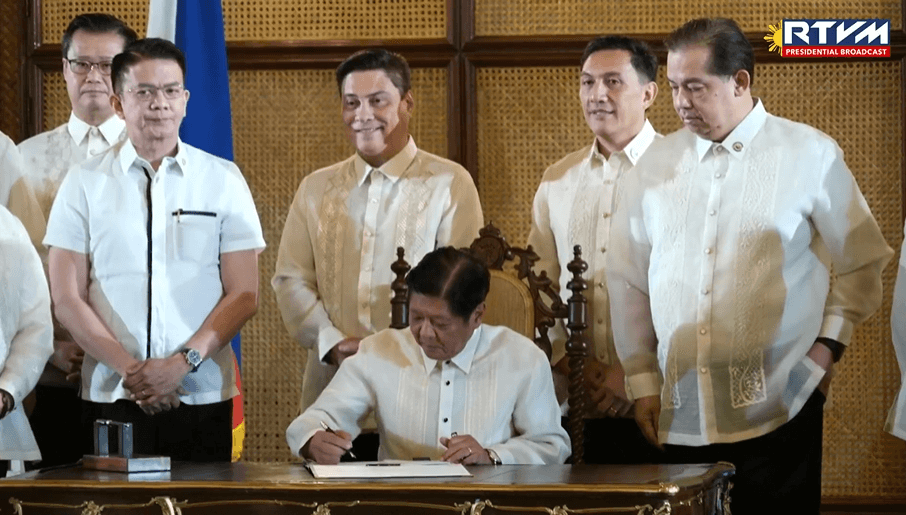Marcos signs Self-Reliant Defense Posture Revitalization Act
New law allows PH to build an independent defense strategy
President Marcos has signed the Self-Reliant Defense Posture Revitalization Act, which, he said, would allow the country to build an independent defense posture not reliant on other parties.

In a ceremony at the Malacañan Palace on Tuesday morning, Oct. 8, Marcos signed the Republic Act No. 12024 or the Self-Reliant Defense Posture Revitalization Act.
In his speech, the President said with the signing of the new law "we are anchoring our defense strategy firmly in the strength of our own resources and capabilities."
"With this Act, we are broadening our perspective on defense. We are not just looking at tanks and rifles; we are building capacities that address these unconventional dangers head-on. This means developing systems and strategies that are reactive and predictive, allowing us to stay a step ahead of those who wish harm to the Philippines," Marcos said.
He stressed that for decades, the Philippines' defense capabilities have relied upon what it could acquire from abroad, which "reminded us that our strength depended on the supply change and the interests of other parties."
Marcos further said although getting help from other parties in terms of defense capability is necessary, the new law would allow the country to build "a defense posture that is independent, dynamic, and geared to the future."
"This law goes beyond the development of weapons or equipment as it seeks to create a framework that makes us less dependent, more resilient, better prepared," Marcos said.
"It is logical move forward for a country that finds itself at the fulcrum of geopolitical shifts and volatilities," he added.
Marcos underscored that the new law establishes a structured approach to defense development, starting with research and production capabilities.
He added that under the new law, the government will prioritize research and development to stay ahead of evolving threats—particularly asymmetrical threats that traditional systems may not be completely equipped to address.
"The strategy is clear: we start by strengthening the foundations—the research, the production capabilities, and institutional support—then build upwards, layer by layer, until we have an industry that can stand strong and succeed on its own," Marcos said.
He said that the National Defense Industry Development Plan will serve as the government's guiding document in shaping its defense sector for years to come.
The President explained that the plan prioritizes the production of critical defense materiel locally—"from small arms and tactical vehicles to more sophisticated systems."
The Chief Executive highlighted that the new law would allow the Philippines to build a defense strategy that can counter unconventional threats such as cybersecurity breaches, chemical attacks, and radiological threats among others, which he described as "more than hypothetical risks but pressing realities."
Before ending his speech, Marcos invited the private sector to build an enduring defense industry and told research institutions: let your innovations shape our future and propel us toward
self-reliance.
He also assured the Armed Forces of the Philippines (AFP)that "the Filipino soldier will be bolstered by the ingenuity and the expertise of the Filipino innovator."